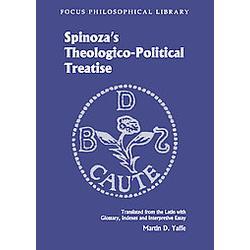Spinoza, Baruch. Theologico-Political Treatise. Edited by Martin Yaffe. Newsbury: Newburyport: Focus Publishing/R. Pullins Co., 2004.
Excerpt:
PREFACE. (1)Men would never be superstitious, if they could govern all their circumstances by set rules, or if they were always favoured by fortune: but being frequently driven into straits where rules are useless, and being often kept fluctuating pitiably between hope and fear by the uncertainty of fortune’s greedily coveted favours, they are consequently, for the most part, very prone to credulity. (2) The human mind is readily swayed this way or that in times of doubt, especially when hope and fear are struggling for the mastery, though usually it is boastful, over-confident, and vain.
(3) This as a general fact I suppose everyone knows, though few, I believe, know their own nature; no one can have lived in the world without observing that most people, when in prosperity, are so over-brimming with wisdom (however inexperienced they may be), that they take every offer of advice as a personal insult, whereas in adversity they know not where to turn, but beg and pray for counsel from every passer-by. (4) No plan is then too futile, too absurd, or too fatuous for their adoption; the most frivolous causes will raise them to hope, or plunge them into despair – if anything happens during their fright which reminds them of some past good or ill, they think it portends a happy or unhappy issue, and therefore (though it may have proved abortive a hundred times before) style it a lucky or unlucky omen. (5) Anything which excites their astonishment they believe to be a portent signifying the anger of the gods or of the Supreme Being, and, mistaking superstition for religion, account it impious not to avert the evil with prayer and sacrifice. (6) Signs and wonders of this sort they conjure up perpetually, till one might think Nature as mad as themselves, they interpret her so fantastically.
